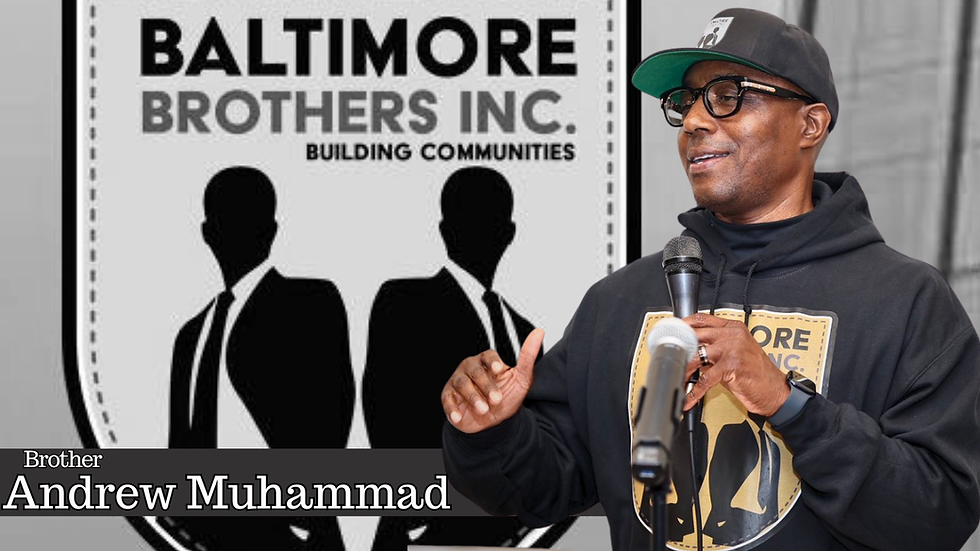Jan 15th A Reminder Of Dr. Martin Luther King Jr.: A Visionary Leader for Justice and Peace
- Brother Levon X

- Jan 15
- 4 min read

January 15 marks the anniversary of the birth of Dr. Martin Luther King Jr., a revolutionary, visionary, and humanitarian whose mission was to ensure equal justice for the Black community and all of humanity. Dr. King's unwavering belief in equality and justice was rooted in his deep faith and a profound sense of purpose. Yet, his journey was fraught with immense challenges—Jim Crow laws, systemic racism, and even skepticism from some within his own community. Despite being ridiculed, tormented, beaten, and imprisoned, Dr. King persevered, demonstrating love and resilience that only someone truly called to a divine mission could embody.
Dr. King's activism challenged the hypocrisy of a nation that professed liberty and justice while perpetuating violence and oppression. Though his methods were peaceful, his impact was revolutionary. His philosophy of nonviolence, inspired by Mahatma Gandhi and the teachings of Christ, was not just a strategy but a moral stance. He preached turning the other cheek in a society steeped in lynching, rape, and systemic murder, and yet the media labeled him a communist and an enemy of the state.
The Fight Against Injustice
One of Dr. King's earliest and most impactful actions was the Montgomery Bus Boycott of 1955-56. Sparked by Rosa Parks' courageous defiance, the boycott lasted over a year and showcased the economic power of the Black community. This nonviolent protest became one of the most successful examples of civil disobedience in American history and led to the desegregation of public buses.
Dr. King's leadership extended to legislative victories as well. Through strategic pressure and relentless advocacy, he played a pivotal role in the passage of the Civil Rights Act of 1964 and the Voting Rights Act of 1965. These landmark laws, signed by President Lyndon B. Johnson, were monumental in dismantling legalized segregation and ensuring voting rights for African Americans. Yet, these achievements did not come without compromise. Johnson was no friend to the Black community, but Dr. King's ability to leverage his movement's moral and economic power demonstrated his strategic brilliance.
Opposition to the Vietnam War
As Dr. King’s influence grew, he began to address broader issues, including economic injustice and the Vietnam War. In his 1967 speech, Beyond Vietnam: A Time to Break Silence, delivered at Riverside Church in New York City, Dr. King denounced the war as “a cruel manipulation of the poor.” He condemned the hypocrisy of a nation sending young Black men to fight and die in a foreign land while denying them basic rights at home. This stance, while morally consistent, further alienated him from the political establishment and some civil rights allies. Nonetheless, it underscored his commitment to justice for all oppressed people.
Dr. King’s unwavering stance against unjust wars suggests that, were he alive today, he would undoubtedly condemn the ongoing violence and humanitarian crisis in Gaza. His philosophy of nonviolence and his relentless advocacy for peace would compel him to speak out against the devastation and suffering inflicted upon innocent civilians. As he once said, "Injustice anywhere is a threat to justice everywhere," a principle that transcends time and geography.
The Poor People's Campaign
In 1968, Dr. King shifted his focus to economic justice, launching the Poor People's Campaign. This ambitious initiative sought to address poverty across racial lines and aimed to hold the U.S. government accountable for systemic economic inequality. Dr. King planned to camp at the National Mall in Washington, D.C., until Congress took meaningful action. Tragically, his assassination on April 4, 1968, in Memphis, Tennessee, cut this campaign short. Yet, his wife, Coretta Scott King, and other leaders carried on his vision, organizing Resurrection City, a six-week protest at the Mall. Although the movement faced challenges and was ultimately disbanded by police, it planted seeds of economic advocacy that continue to inspire activists today.
Lessons for Today
Dr. King's life and legacy remind us of the immense power of faith, courage, and collective action. He understood that true freedom required not only dismantling discriminatory laws but also empowering communities through economic self-sufficiency. He met with leaders like The Honorable Elijah Muhammad and Malcolm X, recognizing the value of unity among diverse approaches to justice. Imagine the transformative potential if these giants had united fully in their shared vision.
Today, the Black community wields over $1 trillion in spending power—more than the GDP of many small nations. This economic influence, if harnessed wisely, could fund schools, businesses, and healthcare facilities, fostering self-reliance and growth. As Dr. King's work taught us, waiting for external saviors is not an option. The responsibility lies with us to carry the torch forward, building upon the foundation laid by our predecessors.
Dr. King's legacy is a call to action. His bravery, resilience and unwavering commitment to justice illuminate the path forward. It is our duty to honor his sacrifices by continuing to fight for equality, economic empowerment, and unity within our communities. Let us draw strength from his example and work tirelessly to create a world where his dream becomes reality.
As we reflect on his life, let us remember his words: "Life's most persistent and urgent question is, 'What are you doing for others?'" As Dr. King did, we may answer this question with action, courage, and faith.
Citations:
King, Martin Luther Jr. Stride Toward Freedom: The Montgomery Story. Harper & Row, 1958.
Branch, Taylor. Parting the Waters: America in the King Years 1954-1963. Simon & Schuster, 1988.
King, Martin Luther Jr. “Beyond Vietnam: A Time to Break Silence,” Riverside Church, April 4, 1967.
Garrow, David J. Bearing the Cross: Martin Luther King Jr. and the Southern Christian Leadership Conference. William Morrow, 1986.
Honey, Michael K. Going Down Jericho Road: The Memphis Strike, Martin Luther King's Last Campaign. W.W. Norton, 2007.
Carson, Clayborne, editor. The Autobiography of Martin Luther King Jr. Warner Books, 1998.





Comments